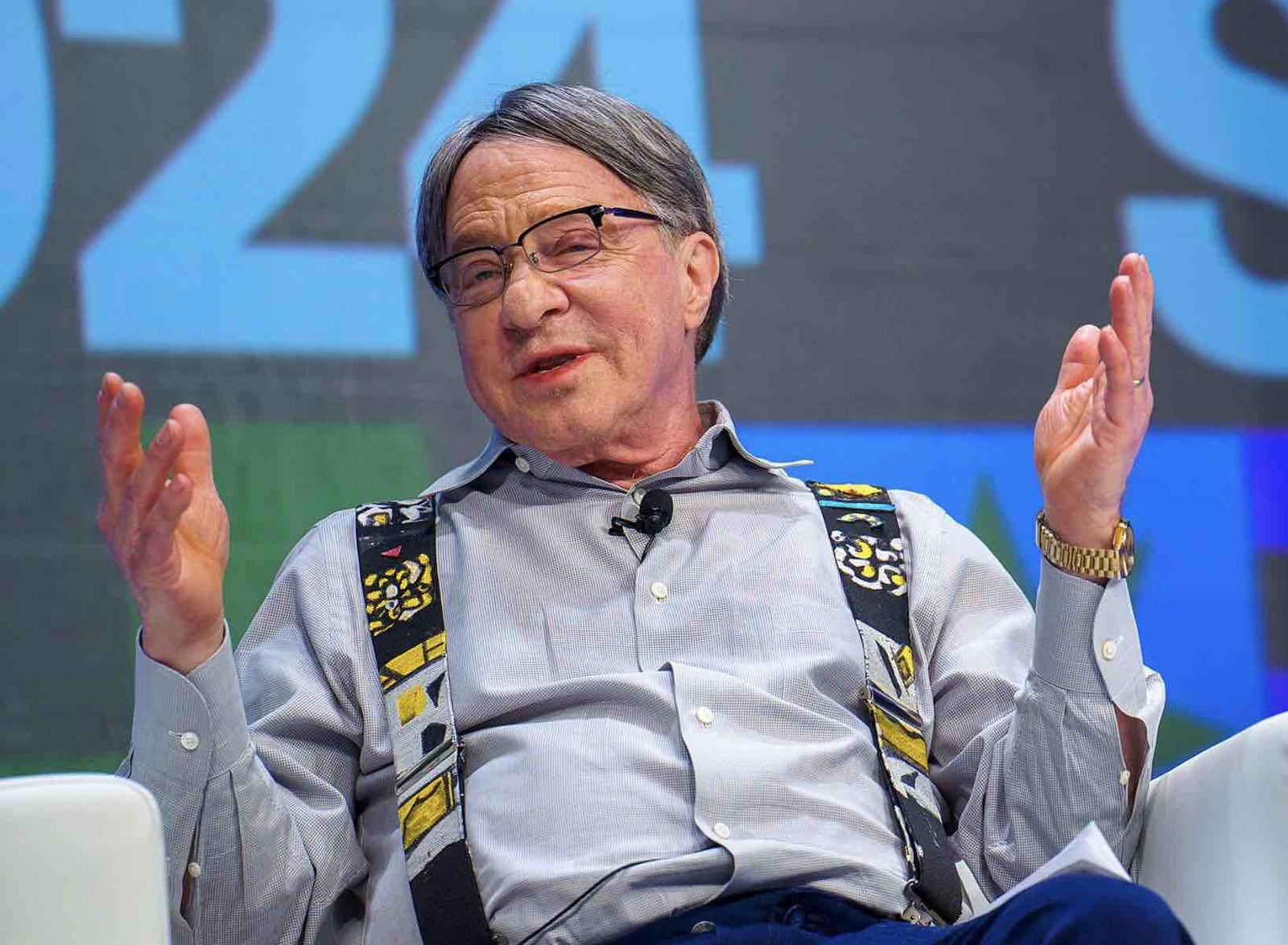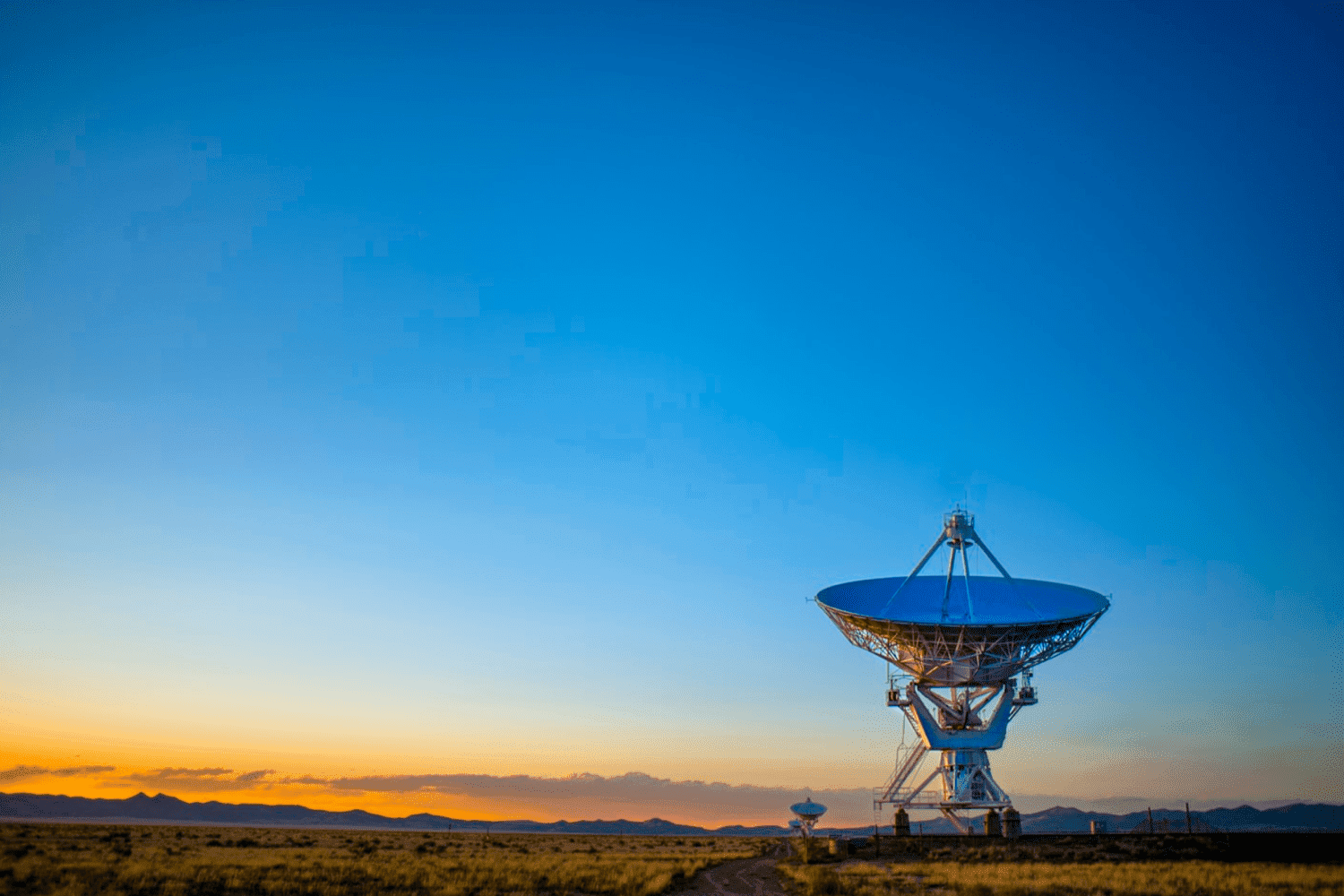

Welcome to this week’s special Independence Day installment of The Intelligence Brief… while much of the current news cycle is casting a bleak outlook for America this ID4, in our analysis this week, we’ll be looking at how science and technology are poised to improve the lives of Americans, and citizens of other nations around the world in the coming years. We’ll be looking at 1) what recent polls are saying about the current state of America and the attitudes of its citizens, 2) how AI, biotech, and other technologies are set to improve our jobs, health, and overall state of being, and 3) a further look at how everything from advancements in energy, transportation, quantum computing, cybersecurity, and space exploration bear promise for the future of America.
Quote of the Week
“My dream is of a place and a time where America will once again be seen as the last best hope of earth.”
— Abraham Lincoln
Latest News: In recent articles at The Debrief, Harvard astronomer Avi Loeb explains how NASA’s Webb Telescope is helping to reveal new insights into how mysterious galaxies known as “little red dots” formed at the cosmic dawn. Elsewhere, researchers have achieved high-vacuum levitation of a silica nanoparticle on a photonic-electric chip, revolutionizing nanotechnology. You’ll find links to all of our recent stories can be found at the end of this week’s newsletter.
Podcasts: In podcasts this week, over on The Micah Hanks Program I look at the potential intersections between artificial intelligence and unidentified anomalous phenomena. Meanwhile, on The Debrief Weekly Report, Stephanie and Kenna discuss a new nano robot developed in Sweden that can kill cancer cells in mice. You can subscribe to all The Debrief’s podcasts on our Podcasts Page.
Video News: This week on Rebelliously Curious, Chrissy Newton is joined by John Priestland and Dr. Daniel Stubbings of the UK-based uNHIdden initiative. Be sure to check out other great content from The Debrief on our official YouTube Channel.
With that all behind us, it’s time to pour a glass of iced tea, toss some charcoal on the grill, and dive into the advancements in science and technology that are poised to enable a brighter future for Americans.
Independence Day: Low Morale in America
This year, as Americans celebrate Independence Day, uncertainty looms over the national holiday as results of a recent Gallup poll showed that for the fifth consecutive year, fewer Americans than traditional averages have seemed to express being proud of their nationality, with just two out of five saying they are “extremely proud” to be American.
Gallup says the recent poll shows figures that are among its lowest trends ever observed, at just four points over the past nearest record low in 2020. The poll arrives amid headlines dominating the news cycle over recent shakeups to the forthcoming U.S. election in the aftermath of a televised debate between the two current candidates that many, if not most, saw as disastrous.


Obviously, America has some issues right now. While all this may reveal a bleak forecast for this Independence Day celebration, there are still reasons to remain positive that exist well outside the often-divisive world of politics and government. So this week, as we get ready to cut into a slice of apple pie and watch the fireworks displays (or maybe red, white, and blue drone light shows in communities that are opting to cut down on noise), we’ll be looking to areas of science and technology where developments are pointing to a promising future for Americans, and for others around the globe.
AI, Biotech, and Health Care
Recent developments in artificial intelligence (AI) and automation are already revolutionizing various industries. While many worry about the proverbial “robots taking our jobs,” a more likely outcome of the increased implementation of AI and automation will be that it leads to increased efficiency and productivity while helping to give rise to new professions. This development will necessitate reskilling and upskilling the workforce to adapt to new job requirements.
In a recent interview with The Guardian, futurist Ray Kurzweil said although automation will certainly impact certain industries and their workforces, “new capabilities also create new jobs.” Kurzweil points to the rise of nascent professions like “social media influencer” that he says “didn’t make sense, even 10 years ago.” He adds that currently, “we have more jobs than we’ve ever had, and US average personal income per hours worked is 10 times what it was 100 years ago adjusted to today’s dollars.” In addition to AI and automation, the trend toward implementation of AI-driven smart city initiatives will likely also help to improve urban living through enhanced infrastructure management, traffic control, and energy efficiency.


In addition to AI and automation, advancements in genomics and biotechnology are steadily enabling a future where highly personalized treatments will be tailored to individual genetic profiles, improving not only the outcomes of treatments and reducing side effects but generally improving our overall wellness. Despite lingering setbacks from the coronavirus pandemic, one positive development that resulted from it was the increased use of telemedicine, a trend that continues to make healthcare more accessible, especially in rural areas, reducing the need for physical visits and cutting costs.
Energy, the Environment, and Communication
Sustainability across a range of industries is helping to greatly improve our accessibility to resources that include energy, food, transportation, and more. With continued advancements in solar, wind, and battery technologies driving the U.S.’s transition toward cleaner energy sources over time, our overall dependence on fossil fuels will also help to mitigate worrying climate issues and a range of other problems.
New technologies are also enabling more sustainable agricultural and industrial practices, which help to reduce the impact these industries have on the environment and ensure production while conserving natural resources. Under current federal plans, the U.S. aims to institute 100% carbon pollution-free electricity by 2030, as well as 100% zero-emission vehicle acquisitions by 2035, and net-zero emissions buildings by 2045, with an aspired 50% reduction by as early as 2032.
Along with sustainable practices currently being implemented under U.S. policy, the deployment of 5G networks will enhance connectivity, enable faster data transfer, and ultimately support the Internet of Things (IoT) while helping to foster new innovations in various sectors, including homes and autonomous vehicles.
Transportation and Education
On the topic of autonomous vehicles, the development and adoption of self-driving cars and trucks currently underway by various U.S. automakers is poised to reshape transportation and improve safety while also reducing congestion amid steadily growing population numbers. Such developments will also likely impact urban planning, especially in larger population centers.
In addition to greater autonomy in the automobiles of tomorrow, the increased adoption of electric vehicles (EVs) will align with current plans to reduce carbon emissions and reliance on fossil fuels. Currently, developments in battery technology and charging infrastructure support the advancement of such technologies.
Advances in educational technology are another area where new technologies are continuing to transform past approaches. Traditional learning environments are being complemented by new innovations that offer personalized and adaptive learning experiences through online platforms and virtual reality. As AI and automation carry out a greater number of tasks once performed by humans, educational technologies and resources—especially those available online—will help to enable continuous learning and skill development that will allow workers to remain relevant amid the rapid changes that are expected as new industries are added to the job market.
Quantum Computing, Cybersecurity, and the Final Frontier
Although presently still in its infancy, one industry that is certain to be a game-changer on many levels involves quantum computing, which experts believe will mark a revolution in data processing and computing capabilities. From complex simulations that help scientists model phenomena in our universe to cryptography, materials science, and a range of other fields, quantum computing will help to greatly advance a range of industries and other areas for Americans and the entire world.
Another area that will likely benefit from quantum computing is cybersecurity. A running timeline of cybersecurity incidents since 2006 made available at the website of the Center for Strategic & International Studies reveals the rise of such incidents, particularly those involving attacks on government agencies, defense contractors and companies, and also companies in the technology sector. With the rise of such cyber threats, emerging technologies in cybersecurity, some of which may be enabled or enhanced with quantum computing, will be crucial in protecting critical infrastructure, personal data, and national security. Additionally, blockchain technologies will further enhance security and transparency in transactions, supply chains, and various digital interactions in the years ahead.


Finally, the rise of private space companies is accelerating space exploration by allowing efforts once driven entirely by governments to become outsourced to industry. The result is the promise of new economic opportunities for Americans in the years ahead, not only with relation to the development of space technologies but also resulting from scientific discoveries they will enable, ultimately leading to the development of new emerging space-based industries. Further, innovations in sustainable living in space, such as eco-friendly satellites and habitats, are currently underway and will pave the way toward the eventual long-term presence of humans beyond Earth.
Of course, this technological forecast for the world of tomorrow is not inevitable. For such advancements to come to fruition, cooperation among lawmakers not only within the U.S. but also with the leaders of other nations will be required as we move toward such aspirations.
Still, while the media’s preoccupation with concerns about America, its politicians, and what poll numbers are showing about those who reside here, it’s important to remember that the countless number of Americans out there who are driving the technological innovations right now that will almost certainly lead to a far brighter future than what recent headlines would have us believe. On that note, we here at The Debrief wish you all a happy Independence Day… and here’s to a greater, better tomorrow.
That concludes this week’s installment of The Intelligence Brief. You can read past editions of The Intelligence Brief at our website, or if you found this installment online, don’t forget to subscribe and get future email editions from us here. Also, if you have a tip or other information you’d like to send along directly to me, you can email me at micah [@] thedebrief [dot] org, or Tweet at me @MicahHanks.


Here are the top stories we’re covering right now…
- Strange Swirling Structures on the Moon Could Point to Unseen Activity Beneath the Lunar Surface
New research is shedding light on what causes mysterious lunar swirls and pointing to unexplored phenomena occurring beneath the Moon’s surface.
- Time Crystals Could be the Circuit Boards of Future Quantum Computers
Researchers say that time crystals could one day become a core component in the construction of quantum computers.
- Webb Telescope Discovers Mysterious “Little Red Dots” at Cosmic Dawn
NASA’s Webb Telescope is helping to reveal new insights into how mysterious galaxies known as “little red dots” formed at the cosmic dawn.
- Researchers Achieve High Vacuum Levitation of Silica Nanoparticle, Paving the Way for Future Levitation Technologies
Researchers achieved high-vacuum levitation of a silica nanoparticle on a photonic-electric chip, revolutionizing nanotechnology.
- These Robots Kill Cancer Cells This week on The Debrief Weekly Report…
Join Stephanie and Kenna for the last episode of the season as they discuss a new nano robot developed in Sweden that can kill cancer cells in mice. They also open a channel to the ISS and discuss how NASA is using laser relays to send photos and messages to astronauts. Lastly, they take a trip and talk about how a new study says that micro-doses of LSD can aid in healthy sleep.
- NASA Officially Confirms Mysterious Object Recovered in NC Mountains is SpaceX Debris
NASA has officially confirmed that a mysterious object found on a remote North Carolina trail is SpaceX debris that once belonged to one of the American spacecraft company’s Dragon capsules.
- Yes, Sea Dragons are Real… and Right Now Several of Them Are Hatching
While “sea dragons” may sound like mythical and monstrous oceanic creatures, real seadragons are less mysterious but equally fascinating.
- Game-Changing CERN Experiments Offer Physicists Unprecedented New Insights into the Universe’s Mysteries
Groundbreaking new advancements at CERN are revealing deeper insights into the fundamental nature of our universe.
- Scientists Develop Breakthrough “DNA Origami” Nanobots That Can Precisely Target and Kill Cancer Cells
Scientists have developed DNA origami nanorobots that precisely target and destroy cancer cells in mice, sparing healthy cells.
- Scientists Discover Stress-Tolerant Moss That Could One Day Be a Crop on Mars
Scientists have identified a plant that could be a crop on Mars thanks to its ability to withstand harsh environments.
- Scientists Uncover New Clues To Why the U.S. is the Tornado Capital of the World
New research relying on computer modeling helps answer the question of why the U.S. is the tornado capital of the world.
- A Future War is Brewing in the Arctic. This is How We Stop It Before it Starts.
A new battleground is emerging in the Arctic. With vast natural resources and newly accessible shipping routes, the stakes are high.
- Secrets of 2000-Year-Old Analog Computer Revealed with Help from Gravitational Wave Technology
New insights into function of the famous Antikythera mechanism have been made with help from technology developed for the study of gravitational waves.
- Physicists Are Closing In on The Elusive “Chameleon Particle” and Discovering the Mysterious Nature of Dark Energy
Physicists are now able to detect gravitational anomalies at unprecedented precision in the hunt for the elusive “Chameleon particle.”
- Astronauts are Using NASA’s High-Tech Laser Relay System to Send…Pet Photos?
NASA astronauts are transmitting imagery of their pets over a first-of-its-kind end-to-end, two-way laser relay system.
- SETI Institute Launches Groundbreaking Grants Program in Technosignature Science and the Search for ET
The SETI Institute has announced a groundbreaking grants program to help advance technosignature science and the search for extraterrestrial intelligence.
- Julian Assange, Famous and Controversial Wikileaks Founder, is a Free Man
This week Julian Assange, the famous founder of Wikileaks, finally returned to his home in Australia a free man.
- Unidentified Submersible Objects
This week we dive into cases involving mystery submarines and odd sightings of unidentified submersible objects (USOs) from throughout the years.
- Warp Theorists Say We’ve Entered an Exotic Propulsion Space Race to Build the World’s First Working Warp Drive
The Debrief recently spoke with a team of warp drive researchers about advancements in their field of research and the dawn of the world’s next space race.
- “Sportswashing” Remains a Prevalent and Highly Effective Way To Hide Dark Realities, Research Shows
How sportswashing manipulates global perception, from Nazi Germany’s 1936 Olympics to modern regimes, masking controversies through sports.
- Discovery in NASA’s OSIRIS REx Mission Samples Point to Asteroid Bennu’s Surprising Origins
Asteroid samples retrieved by NASA’s OSIRIS-REx mission have revealed the presence of components hinting at the origins of life on Earth.
- Futurist Predicts Humans Will Soon Live 1,000 Years, Thanks to Nanobots and AI
Futurist Raymond Kurzweil predicts humans may soon live up to 1,000 years by merging biotechnology, AI, and nanobots.
